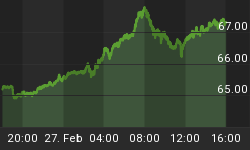Sir Winston Chruchill once admonished leaders to never let a good crisis go to waste. Whereas the Covid-19 pandemic brought the majority of businesses to their knees, some shrewd industries clearly thrived by taking advantage of the crisis. Good case in point is the plastics industry. Facing an existential crisis driven by a wave of bans nationwide, the plastic bag industry took full advantage of the coronavirus crisis to block laws prohibiting single-use plastics. The industry also received a much-needed shot in the arm after the Trump administration gave it an ‘open license to pollute’ by introducing a sweeping relaxation of environmental laws and fines that rendered companies largely exempt from consequences for environmental pollution during the pandemic.
But it’s not just business leaders who get to benefit from Churchill’s wise counsel--crooks sometimes use it to devastating effect.
Remember the Dieselgate scandal of 2016? Dieselgate will be remembered as one of the most high-profile emission scandals in history whereby Volkswagen executives connived to market their “clean-diesel” vehicles anchored on an environmentalist’s dream: high-performance cars with excellent fuel economy and squeaky clean emissions profile to rival hybrid EVs’—only that it turned out to be little more than a software-conjured mirage.
Unfortunately, Dieselgate ended up having nasty, unintended consequences. The sudden boom in the price of palladium, an element extensively used to scrub gasoline emissions, spawned a massive wave of crime driven by felons looking to rip out catalytic converters from cars for sale as scrap metal. Thefts of catalytic converters skyrocketed from an average of 108 per month in 2018 to 2,347 in December 2020, thanks to palladium prices skyrocketing and overtaking gold as the most precious of the precious metals spurred by more stringent diesel emission standards in Europe following Dieselgate as well as new emissions regulations for Chinese cars. Palladium has been trading at considerable premium to gold, with an ounce going for $2,168 vs. $1,862 for the yellow metal.
And now the Covid-19 is having similar unintended consequences: Massive supply chain disruptions by cargo theft.
According to CargoNet, a division of Verisk Analytics, via CBS News, ongoing supply-chain snarls have led to a spike in cargo theft. And, just like Dieselgate, the prime targets of the cargo thieves are electronics whose prices are skyrocketing amid a global chip shortage.
For the first nine months through September, California topped the list of states with the most reported cargo thefts, followed by Texas and Florida. On the West Coast, a computer chip shortage has led to rising prices for electronics like PCs and gaming consoles while on the East Coast, refrigerated trucks used to transport food have become a top target.

Source: CBC News
In terms of value of goods stolen, this year’s figure clocks in at $45 million through September compared with $49 million for the whole of 2019 and $68 million last year.
Experts are warning that the accelerated pace of theft is likely to continue through 2022.
In fact, some experts expect this unfortunate trend to continue for a few more years.
"What we're going to see next year is probably going to be similar to what we're going to see this year, as far as electronics and the same type of commodities. I don't see us coming out of that for a few years," Keith Lewis, who oversees CargoNet's operations, has told CBS.
The experts say that the value of goods stolen could be much higher than reported due to rampant pilferage, which is typically much harder to track and report than large-scale theft.
The crisis continues
The ongoing supply-chain disruptions actually started more than a year ago as governments and businesses responded to COVID-19 and inadvertently created numerous interruptions. That combined with exploding consumer demand proved to be a perfect recipe for transportation bottlenecks in the form of ever-growing port backlogs that created the famous line of cargo ships off the California coast.
The backlog only gets worse as more and more importers try to shove more goods through those bottlenecks. Add the mess of factory closures, labor issues, and equipment shortages and the disruptions appear to have hit nearly all sectors of the economy.
So, when will this snafu end?
The short answer: Nobody knows.
The problem here is that this crisis doesn't appear to have clear edges. For instance, assuming all the ports in Los Angeles and Long Beach clear up, there’s no guarantee that there will be enough trucks on the road, or delivery vans out in the streets, or workers in warehouses to do the delivery.
In general, company executives and logistics experts are saying the congestion will only ease when there are enough workers for trucking, port and warehouse operations.
“I won’t try to prognosticate when and how this ends, but I do believe that it’s going to extend for quite some time,” Bob Biesterfeld, chief executive officer of C.H. Robinson Worldwide Inc., the largest U.S. freight broker, said on the company’s third-quarter earnings call last week.
Business executives continue to disagree on when the supply-chain chaos will end, with estimates ranging from early next year to 2023.
















